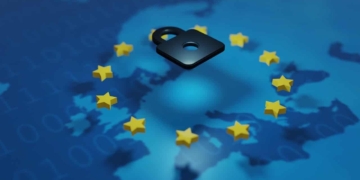OnlyFans has revolutionized the income opportunities for adult content creators – but with success comes legal challenges. In particular, data protection and anonymity are crucial in the adult industry: creators want to protect their identity, but at the same time must comply with the General Data Protection Regulation (GDPR). Another hot topic is the use of third-party chatting services (chat agencies) that communicate with fans on behalf of the creator. This raises the issue of deception: is it legally permissible to maintain the illusion of personal chats or is there a duty of disclosure? This legal guide takes a comprehensive look at the GDPR risks and solutions for OnlyFans creators. It shows how models and agencies can act in compliance with data protection regulations, operate under a pseudonym and remain commercially successful – without coming into conflict with the law.
In the following, we first clarify the roles of OnlyFans (UK platform with GDPR equivalence) and the creator/agencies with regard to data protection. We then look at typical risks, such as data transfer to chat managers, and the legal consequences (including possible fines under Art. 83 GDPR). We then explain how creators can appear under a pseudonym in a legally compliant manner (e.g. artist name, imprint details via PO box or agency address) and where the limits of anonymity lie (e.g. business registration, tax). In the second part, we look at chat agencies: when their use is considered deception or a data protection risk, whether there is an obligation to disclose and which GDPR requirements (Art. 5, 6, 28, 32 GDPR) apply when third parties view chat histories. We also take a look at OnlyFans’ terms and conditions with regard to outsourced communication and draw comparisons with judgments and official assessments from similar areas (erotic platforms, cam services, sexting apps). Finally, we provide practical recommendations for creators, agencies and technical service providers on how to design GDPR-compliant processes.
GDPR compliance on OnlyFans: Responsibilities of the platform, creator and agency
As a platform operator based in the UK, OnlyFans is still subject to high data protection standards despite Brexit, as the company offers services in the EU and EU citizens act as both creators and fans. In practice, OnlyFans complies with EU data protection rules so that a comparable level of protection applies as under the GDPR. The platform processes a wealth of personal data – from ID documents (e.g. for age verification) to payment data and chat messages. Erotic content and private chats in particular can contain sensitive information that allows conclusions to be drawn about a person’s sex life or preferences. Although such chat content does not automatically belong to the “special categories” of personal data, in practice it is highly worthy of protection. Data breaches such as leaked chat logs or images could lead to a great sense of shame, the risk of stalking or the potential for blackmail among those affected. This is why data security and discretion have top priority – not only for moral reasons, but also because it is a legal requirement.
Allocation of roles and responsibilities: Within the OnlyFans platform, the operator assumes many data protection-related tasks (e.g. technical security, payment processing, provision of a general data protection policy). However, this does not release the individual OnlyFans Creator from responsibility: Creators are given access to personal fan data (user names, comments, messages) and must treat it confidentially. The fans’ information may only be used for the intended purpose – namely direct interaction with the fan on OnlyFans. Disclosure for any other purpose is prohibited. For example, it would be a data protection violation to forward screenshots of fan chats to third parties without being asked. The Creator is the first point of contact for fans when it comes to protecting their data.
As soon as a creator uses or stores data outside of the platform, the responsibility shifts completely to them. At that moment, the creator (or a commissioned agency) acts as its own controller within the meaning of the GDPR. Practical example: A creator exports fan email addresses in order to send newsletters outside of OnlyFans. To do this, it must ensure a valid legal basis in accordance with Art. 6 GDPR (e.g. express consent from fans for marketing purposes). It must also guarantee the rights of the fans concerned. For example, fans have the right to know what data is stored about them and the right to delete data that has been stored without authorization. Such rights are often implemented centrally on the platform by OnlyFans (e.g. deleting an account on request). However, as soon as the creator stores data independently outside of OnlyFans, they must ensure that requests for information or deletion are fulfilled themselves. This shows that you cannot simply rely on OnlyFans when exporting or processing data externally – the obligations of the GDPR then apply directly to the creator (or their company).
Agencies and intermediaries: Many creators work with OnlyFans agencies or managers who help with the creation and marketing of content. These agencies can, for example, take over the marketing or even administer the account on behalf of the creator. From a data protection perspective, it is important to clarify whether the agency is acting as a processor within the meaning of Art. 28 GDPR (i.e. a service provider of the creator bound by instructions) or whether it makes its own decisions and thus may become a joint controller. As a rule, agencies are contractually integrated in such a way that they are bound by instructions in data protection matters – they carry out tasks “on behalf of the creator”. For example, an agency could post articles or have access to revenue data. It is important that agencies only collect and process the necessary personal data, store it securely and delete it once the purpose has been achieved. Agencies also require a legal basis for all personal data entrusted to them (creator data, fan data) and must maintain confidentiality. Ideally, a contract should clearly regulate which data the agency processes on behalf of the creator and that it does not use this data for its own purposes.
Summary: Creators, agencies and service providers each have clear obligations under the GDPR. They must ensure data minimization, purpose limitation and confidentiality and take appropriate security measures. Violations can not only destroy the trust of paying fans, but also result in official complaints from users. Data protection authorities can intervene, and serious breaches can result in fines of up to 20 million euros or 4% of annual global turnover (whichever is higher). In addition, individual fans may be able to claim compensation if they suffer damage as a result of data protection breaches (e.g. due to data leaks or identity misuse). It is therefore worth ensuring compliance from the outset, especially as this also strengthens the trust of the community.
Legal limits to anonymity: pseudonymity, imprint obligation and identity protection
Many creators understandably want to appear under an artist name (pseudonym) in order to separate their private self from their public self. In the adult entertainment sector, this serves to protect their family, main job and personal environment. In principle, a consistent appearance under an alias is permissible – contracts with fans (e.g. for subscriptions or purchases) can in fact be concluded under the artist name. Under civil law, of course, the real identity is in the background, but this does not have to be revealed immediately to the outside world. However, the decisive factor is that a pseudonym does not replace the real name in all respects. There are legal requirements that conflict with complete anonymity. Behind the scenes, certain bodies (authorities, contractual partners) need to know your real identity.
A key issue is the obligation to provide a legal notice – the conflict between transparency and privacy. In Germany, anyone who offers content online for business purposes must provide a legal notice with a summonable address and responsible name. Until the end of 2024, this was regulated in Section 5 of the German Telemedia Act (TMG); the obligation can now be found in Section 5 of the new Digital Services Act (DDG). The Interstate Media Treaty of the federal states (Section 18 MStV) also contains corresponding information obligations. Important: As soon as an OnlyFans creator generates permanent income with their profile (which is the purpose of the platform), this is considered a “commercial” offer – and an imprint is required. Many creators are surprised that this also applies to platform profiles and social media accounts, but German courts have made it clear that commercial Instagram profiles or OnlyFans accounts, for example, are subject to the legal notice requirement. A missing legal notice can result in warnings from competitors or associations and, in serious cases, a fine. Theoretically, the new DDG threatens fines of up to €50,000 for violations of the imprint obligation. In practice, private enforcement is more common: Another creator or agency discovers the missing legal notice and has a lawyer issue a warning. This results in costs and the obligation to publish a proper legal notice immediately.
But how should you provide an imprint without revealing your home address? Many people are understandably reluctant to publish their home address on an erotic platform. The problem cannot be solved completely anonymously, but there are practical solutions to protect your own address:
- Business address instead of residential address: Ideally, you should use an alternative summonable address. This can be the address of an agency, a lawyer or a special imprint service provider, for example. A c/o model is often chosen: For example, you agree with your own agency or a lawyer that mail will be accepted there for you. The imprint then reads, for example: Max Mustermann (stage name: SexySusi), c/o XYZ Media GmbH, Musterstraße 1, 12345 Berlin. It is important that deliveries can actually be made to this address in an emergency. The named person/company must therefore be prepared to accept and forward documents. In this way, the private residential address remains hidden, while the imprint obligation is formally fulfilled. There are now service providers who offer precisely this service (for a fee).
- PO box is not sufficient: A mere PO box is not a permissible imprint. The law requires a physical address to which an injunction can be served in the event of a dispute, for example. A PO box does not provide a contact point for a bailiff and therefore fails. We strongly advise against the temptation to simply write a PO box in the legal notice – this would be a violation of the law.
- Found a company: Some creators consider founding a corporation (e.g. GmbH or UG) and having it officially act as the provider. The company name and business address would then appear in the legal notice. However, in the case of legal entities, the managing director authorized to represent the company must be named in the legal notice. Your own identity would therefore be at least partially disclosed again. In addition, entries in the commercial register can be viewed by the public, and setting up a company involves effort and costs. For individual creators, this is usually not worthwhile for the imprint alone. At best, if you set up a company anyway for tax or business reasons, it can act as the operator – but you can’t hide completely behind a company either.
In addition to the legal notice, there are other points where the clear name requirement applies: When registering a business, for example. Anyone registering a business in Germany (which is necessary if you regularly work for OnlyFans) must provide their real name and registration address to the trade office. However, you can often register a “business name” or job title such as “Media Content Creator ‘SexySusi’”. This appears on the business license and can be used on invoices, for example. The good news is that the business registration is not publicly visible on the internet – it is primarily used for official purposes. The data is subject to data protection, and third parties only receive information if there is a legitimate interest (journalists or competitors could theoretically ask the trade office what has been registered, but would need a specific reason).
Tax obligations do not permit pseudonyms: the person/company providing the service must be correctly named on invoices (i.e. full name and address for sole traders, a pseudonym can be added if necessary). All relevant personal data must be provided to the tax office anyway – the tax office treats this as confidential (tax secrecy). In short, a creator can and may use an alias externally and shield their private identity as much as possible. Behind the scenes, however, you must “dutifully” fulfill all legal obligations. If you comply with these steps – imprint via a representative, fulfill business/tax obligations with a clear name, sign contracts in your real name if necessary – you can operate under a pseudonym with legal certainty. The limits of anonymity are reached where laws require a real name or public registers are relevant. However, a serious pseudonymous appearance is feasible if you know the rules and use creative solutions (such as the c/o address).
Third-party chatter services: Data protection risks and appearance vs. reality
A particular phenomenon on OnlyFans is the use of third-party chatter services or chat agencies. These are service providers or employees who write to fans on behalf of the creator and sometimes even imitate the identity of the creator. Many successful creators employ professional chat managers to interact with subscribers around the clock in order to increase fan loyalty and sales. From a data protection perspective, this is clearly commissioned processing: the chat agency accesses fans’ personal data (profiles, message content) exclusively for the purpose specified by the creator. Strict requirements apply here to ensure that this collaboration is GDPR-compliant.
Data processing agreement (DPA): First of all, a written contract for order processing in accordance with Art. 28 GDPR must be concluded between the creator (as the controller) and the chat agency. This must stipulate that the agency will only process the fan data for a specific purpose, i.e. exclusively for replying to messages on behalf of the creator. Such a DPA ensures that confidentiality is maintained and that the data is not used for other purposes or even passed on to unauthorized persons. The chat agency undertakes, among other things, not to copy or use any data without authorization and to treat the communication as strictly confidential. It must also take appropriate security measures – e.g. protected access to OnlyFans and never pass on the Creator’s login data without authorization. For their part, individual chat employees of the agency must be obliged to maintain confidentiality, ideally also in writing.
If such a contract is missing or the agency does not adhere to it, there is a data protection breach for which the creator is responsible in case of doubt. After all, they commissioned the third party and must therefore ensure that all GDPR requirements are met. If, for example, chat content is leaked by a careless agency employee, both the creator and the agency could be targeted by the supervisory authorities. Both are jointly liable if data protection violations are caused by negligence.
Legal basis and consent: A tricky point is the legitimization of data transfer to third parties. Is the creator even allowed to pass on fan messages to an external agency for processing? In principle, the following applies: without the consent of the fans or without contractual involvement as a processor , the creator may not simply pass on fan data to third parties. However, it can be argued that replying to messages is part of the contractual obligation to the fans – after all, the fan pays (via their subscription or message fee) for the communication service. In this respect, the transfer to a service provider bound by instructions could be covered by “performance of a contract” (Art. 6 para. 1 lit. b GDPR) or at least legitimate interest, as long as an AV contract exists and the fan is not disadvantaged by this. However, to be on the safe side – especially when it comes to potentially sensitive content that provides information about the sexuality of fans – a note should be included in the creator’s privacy policy. It would be ideal to inform fans transparently that a team may respond and not always the creator personally. From a purely legal point of view, this could be solved via a passage in the privacy policy (e.g: “The creator uses the service provider XYZ to reply to messages, which receives access to the data provided…”). In practice, however, this is often kept quiet in order to maintain the illusion of personal proximity to the star.
The problem of deception and the duty of disclosure: Is it legally okay to let fans believe that they are chatting directly with the model when in fact a ghostwriter is replying? This is a gray area between data protection law, civil law and competition law. From a data protection law perspective, as mentioned, the main criterion is careful contractual design and transparency. From the point of view of competition law (keyword: misleading according to UWG), one could argue that paying customers are deceived about an essential characteristic of the service if it is not made clear to them that it is a communicative “proxy”. In fact, there are already relevant decisions from analogous areas:
For example, the Flensburg Regional Court ruled in 2022 that a dating portal may not use fake profiles to flirt with customers. In that case, employees were used as supposed users and customers were informed of this in the small print of the terms and conditions. However, the court ruled that this hidden information was not sufficient – the practice undermined the purpose of the contract, as customers expected to chat with real prospects. The portal’s advertising was therefore misleading and the clause allowing the fake chats was invalid. Although the situation with OnlyFans is somewhat different (the creator is real and does not work with completely fictitious identities), the parallel dangers are obvious: fans pay for personal interaction with their idol. If it were openly known that the intimate messages were largely written by a paid third party, they could feel deceived. In extreme cases, it is conceivable that a disappointed fan could take legal action for fraud or deception – for example, demanding a refund of payments because the “service” did not meet expectations. There have also been criminal cases in the area of fake chats (keyword fraud), for example when customers were systematically encouraged to spend money under false pretenses. Although OnlyFans chat agencies are not involved in criminal activity, they should bear in mind the reputational risk: if a creator becomes known for their chats being fake, this can damage their reputation among fans.
OnlyFans Terms of Service and account sharing: Another aspect is the OnlyFans Terms of Service itself. Officially, the OnlyFans Terms of Service only allow the account to be used personally by the owner – passing on or sharing the account with third parties is prohibited. The Acceptable Use Policy literally states: “Do not sell, rent, transfer or share your account to or with any third party…”. So anyone who entrusts their access data to a chat agency is, strictly speaking, breaking this rule. However, OnlyFans also recognizes in its terms and conditions the reality that agents or managers can help with account operation. A clause on the personal responsibility of the Creator states the following: Only natural persons can be Creators, and the Creator is personally responsible for compliance with the Terms of Use. If an agent, agency or third party assists in operating the account or operates it on your behalf, this does not affect your personal liability. Our contractual relationship is with you, not the third party, and you must ensure that all content and account activity complies with the Terms of Use. . OnlyFans is therefore aware of the practice and tolerates it to a certain extent as long as the account holder takes responsibility. As a rule, OnlyFans will not actively search for ghostwriters – especially as many top creators use such helpers and the platform benefits indirectly from this. Nevertheless, there is a residual risk: if a creator shares their access data carelessly and security incidents occur (such as a hacker attack via the insecure second login), OnlyFans could impose sanctions or shift responsibility to the creator in the event of damage. Platforms could follow suit in the future: Competitor site Fansly, for example, is reportedly working on introducing a manager feature that will allow creators to officially assign permissions to third parties. Until then, OnlyFans chat agencies are operating in a tolerated gray area.
Practical tip: Creators should make clear internal agreements with chat service providers regarding tonality and content. If the style of the answers no longer matches the personality, regular fans may notice that something is wrong. Some creators take a middle way and openly state in their profile that a team is helping with the answers – this way you don’t disappoint honest fans and still maintain continuity. From a legal point of view, transparency is the safer option, also in the sense of implied consent from fans: if a fan knows that an assistant is taking notes and still uses the service, their consent is implied.
GDPR compliance in outsourcing: important GDPR articles (Art. 5, 6, 28, 32) at a glance
When using external service providers in a sensitive area such as OnlyFans, creators and agencies should pay particular attention to the following GDPR provisions:
- Art. 5 GDPR – Principles of processing: Personal data may only be processed for a specific purpose, minimized and confidentially. For chat histories, this means that only those who really need it have access and the content may not suddenly be used for other purposes (e.g. marketing without consent). The data must be kept factually correct and up to date (less relevant here) and deleted or anonymized once the purpose has been fulfilled. In the context of OnlyFans, for example, an agency should hand over or delete all fan data to the creator after the end of the collaboration.
- Art. 6 GDPR – Legal bases: All processing requires a legal basis. In the creator-fan relationship, the provision of content and communication is usually covered by the fulfillment of the contract (the fan pays for the service). However, caution is required: If the creator uses fan data outside the platform (e.g. stores their email for later offers), they need an independent basis for this, such as the fan’s consent. If, for example, explicit permission is obtained in the message history (“May I send you special offers by email?”), you are on the safe side. In the case of sensitive data (sex life, preferences), Art. 9 GDPR must even be observed – in case of doubt, explicit consent would be required here, as such chats may contain intimate details. Anyone working with third-party chatting services should also consider whether fans would tacitly assume this or whether their legitimate interest in personal communication is being violated. Transparent information in the privacy policy can help here to make data processing comprehensible for fans.
- Art. 28 GDPR – Order processing: As described in detail above, a DP agreement is mandatory if external service providers process personal data on behalf of the creator. This must specify the creator’s rights to issue instructions, the purpose limitation and protective measures. Without a DPA, there is an unlawful third country transfer or unauthorized data transfer, which can be punished with a fine. Creators should request a written GDPR contract from every agency or chat manager – reputable service providers are prepared for this. At the same time, the creator must check that the requirements are also implemented in practice (keyword: accountability, Art. 5 Para. 2 GDPR). They should therefore document who they have granted access to which data and when, and ideally keep audit trails. In the event of a complaint, they must be able to prove that they have acted in compliance with data protection regulations.
- Art. 32 GDPR – Data security: This concerns technical and organizational measures (TOM) to ensure the security of processing. Practically relevant: Creators should protect their OnlyFans account with a strong password and 2-factor authentication – especially if third parties access it. Chat agencies, on the other hand, must ensure that communication with the creator is encrypted, for example (no sending of chat logs via unsecured channels) and that employees only have access to what is absolutely necessary. No disclosure of login data to unauthorized persons! This should be a matter of course, but is best explicitly prohibited in contracts. If agency employees work remotely, the service provider should have guidelines on access security (such as VPN use, password managers, screen locks, etc.). Creators and agencies should also be prepared to report data breaches: Art. 33 GDPR requires notification to the authority within 72 hours in the event of serious breaches (e.g. if chats are hacked and published). Such worst-case scenarios can be made significantly less likely by taking preventive measures (access restrictions, encryption, regular security checks).
- International data transfer: OnlyFans agencies or chat services are often based in non-European countries – the Philippines or other countries with cheap labor are popular, for example. If personal data flows from the EU to a third country, Chapter V GDPR applies. This means that either the destination country has an adequate level of data protection recognized by the EU (e.g. UK, Canada, Japan – the Philippines do not), or standard contractual clauses (SCC) must be concluded, plus additional protective measures if necessary. In practice, it is very challenging to implement something like this properly. Unfortunately, many companies ignore these requirements – which represents a considerable risk. This is because a breach of the transfer rules can be punished in the same way as any other GDPR breach. Anyone using a chat agency outside the EU should therefore be aware that more needs to be done formally than just signing an AV contract. In addition to the standard clauses, additional guarantees may need to be considered (such as end-to-end encryption of content as long as it is processed in the third country). Of course, it would be ideal to use EU-based service providers where possible in order to save the extra effort. But the reality of the industry shows that work is often done offshore – in this case, it is all the more important to at least know the formalities and weigh up how to minimize the risk.
In conclusion, it should be noted: The GDPR does not stop at national borders if services are clearly geared towards the EU market. A supposed “offshore” operation of an OnlyFans business (e.g. relocation to a non-EU country) does not protect you from the obligations as soon as you serve EU fans. So if you operate internationally, you must still comply with European standards – in case of doubt, this includes providing the same data protection information and contracts to foreign-language fans/partners. Attempts to circumvent the GDPR or imprint obligation by referring to foreign countries usually fail in reality. The long arm of EU law will catch up with you at the latest when it comes to incoming payments, tax issues or legal disputes. For creators and agencies, this means it’s better to work compliantly right away than to rely on loopholes and have to make expensive improvements later.
Practical recommendations for creators, agencies and service providers
Finally, we summarize specific tips on how all parties involved can design data protection-compliant processes – without losing sight of anonymity and economic success.
1. OnlyFans-Creator (Models):
- Imprint and pseudonymity: Set up a proper imprint as soon as you are commercially active on OnlyFans. Use the tricks mentioned above: e.g. a c/o business address via your agency or a lawyer. This way you can be contacted for legal matters without disclosing your private address. Consistently use your stage name in public, but be prepared to give your real name to authorities or contractual partners on request (e.g. during inspections by the trade licensing office or when concluding contracts). You can add your stage name to invoices, but do not replace your real name. In short: create a clear separation between public and private by handling mandatory information professionally.
- Privacy policy and consent: If you become active beyond OnlyFans (own website, email newsletter, sale of merchandise via external stores, etc.), provide a privacy policy in which you transparently explain what data you collect and for what purpose. Obtain the necessary consent – e.g. via opt-in before sending advertising to fans by email. Make sure that you only use tools such as Google Analytics or tracking pixels with prior consent if you operate your own website (cookie banners, etc.). Many fans value discretion – so give them control over their data. Also consider including a note in your OnlyFans profile where fans can find your privacy information (possibly as a link tree link with imprint/data protection).
- Organize order processing: If you work with third parties (agency, photographer, chat manager, payment processor outside the platform, etc.), conclude written agreements. In particular, an order processing contract with a chat agency or social media agency is mandatory. If possible, use samples or templates that your lawyer can provide so that you do not forget anything important (e.g. obligation to return data, deletion periods, subcontracting relationships). Determine internally who has access to fan information and limit the group to a minimum. Document access and authorizations so that you can always find out who is doing what with which data.
- Security first: Secure your accounts and devices in the best possible way. Use unique, strong passwords and enable two-factor authentication for OnlyFans and all important services. Never share unencrypted passwords with third parties – use password managers with shared vaults if you need to grant access to a manager. Change passwords when an employee leaves or the agency contract ends. Update software regularly (including on the smartphone/PC you use to operate OnlyFans). Consider additionally encrypting particularly sensitive data (e.g. personal fan messages that you store externally).
- Emergency plan: Think in advance about what to do if something does go wrong. Do you have the contact details of your OnlyFans contact person ready in case your account is hacked? Do you know who you need to inform if a data breach occurs (authorities, any fans affected)? A prepared response concept saves time in an emergency and also shows authorities that you are aware of your responsibility.
2. agencies and management companies:
- Contractual clarity with creators: Don’t just conclude management contracts with your creator customers about revenue shares etc., but also always conclude a data protection agreement. This should stipulate that you as an agency only process personal data on behalf of the creator, that the creator remains the owner of the data and that you do not acquire any rights of your own to the fan data. Proactively offer creators the opportunity to draw up an AV agreement or sign the creator’s template. A professional approach in this regard is a competitive advantage for you as an agency because it creates trust.
- Internal data protection organization: Instruct employees who have access to OnlyFans accounts or fan data to maintain confidentiality in writing. Provide your team with at least basic data protection training: for example, why you should not copy data to private USB sticks or forward screenshots without being asked. Implement a role and authorization concept – not every employee needs full access. Use official tools if possible: Some platforms develop manager access (see Fansly); until then, ensure limited logins yourself (such as separate times or areas that an employee is responsible for). If you work internationally, consider the issue of third countries: perhaps you can choose European servers for data storage, even if your chat team is based in the Philippines, for example. Then the data remains within the EU/cloud and only access is remote – this simplifies many legal issues.
- Security and quality assurance: As an agency, you are committed to providing a high-quality and secure service. Invest in security measures: Firewall, VPN for your employees, access protection to your project management tools etc. Establish a process for dealing with requests from affected parties: If a fan requests information or deletion via the creator, you must be able to react quickly to enable the creator to respond. It helps if you have a central office (data protection coordinator) that bundles such requests. Also check your contractual chain: if you use sub-service providers (e.g. external marketing tool), you need corresponding data processing agreements with them yourself. In short: Be aware of your position as the creator’s extended workbench and act accordingly carefully.
- External transparency: Consider whether you communicate to the outside world in coordination with the creator that you support them as an agency. This can take the form of a short note in the profile or in the privacy policy. This way you are on the safe side in case someone questions the practice. In any case, you should not claim false facts on your own authority in the name of the creator. If fans ask specific questions, you should not lie – if in doubt, discuss such cases with the creator beforehand to find out how to react.
3. technical service providers (platforms, tools, payment providers):
- Privacy by design: If you offer tools for OnlyFans creators (e.g. analytic tools, chat bots, management apps), make sure you use privacy-friendly default settings. Only collect the data that is really necessary (minimum principle) and enable your customers (the creators) to protect their fans’ data. For example, chat management software could be used to mask certain particularly intimate data or delete it automatically after a certain period of time to reduce the risk.
- EU location and contracts: It is a big plus point if you operate servers within the EU and are clearly committed to the GDPR. Offer your B2B customers a solid data processing agreement directly, which they only need to sign. Provide contact persons for data protection issues who can help with complex issues. If your company is based outside the EU, check whether you need to appoint an EU representative in accordance with Art. 27 GDPR and how to handle international transfers in a legally compliant manner (keyword SCC). The following applies in particular to payment providers: financial data is highly sensitive and PCI DSS standards etc. are also relevant here.
- Security and audits: Demonstrate that your services are secure – for example through certifications (ISO 27001 for IT security or EuroPriSe for data protection) or regular penetration tests. Creators and agencies are more likely to trust a service that demonstrably protects their data. Ensure backups, encryption and access controls in your software. In the event of data protection incidents, cooperate transparently with your customers to jointly fulfill obligations (e.g. reporting to authorities, notifying users if necessary).
- Compliance with OnlyFans: If your tool is integrated into the OnlyFans platform (e.g. via API or account access), make sure that you also comply with the OnlyFans guidelines. This means, for example, that you do not offer any functions that violate the terms and conditions (e.g. automated scraping of fan data without authorization). Ideally, you should work with OnlyFans or register your tool there if possible. This will minimize the risk of creators coming into conflict with the rules through the use of your tool.
Conclusion
Erotic content creators on OnlyFans are faced with the balancing act of offering authentic proximity to their fans while at the same time maintaining their privacy and legal compliance. This balancing act can be mastered with a well thought-out data protection concept: pseudonymity in the public presence combined with legally compliant imprint information and fulfillment of all official obligations means that the real identity remains protected. The GDPR provides the framework within which creative business models can also operate safely in the adult entertainment sector – whether they are solo creators or entire agency teams. Anyone using third-party chatting services should pay particular attention to contracts, confidentiality and transparent communication so as not to jeopardize data protection or the trust of fans. After all, proactive data protection pays off: Creators can create content worry-free, agencies professionalize their offerings, and fans feel respected and in good hands. In short: OnlyFans and data protection are not mutually exclusive. With the right contracts, clear processes and a little legal know-how, GDPR risks can be minimized – and nothing stands in the way of long-term success as an OnlyFans creator.













































